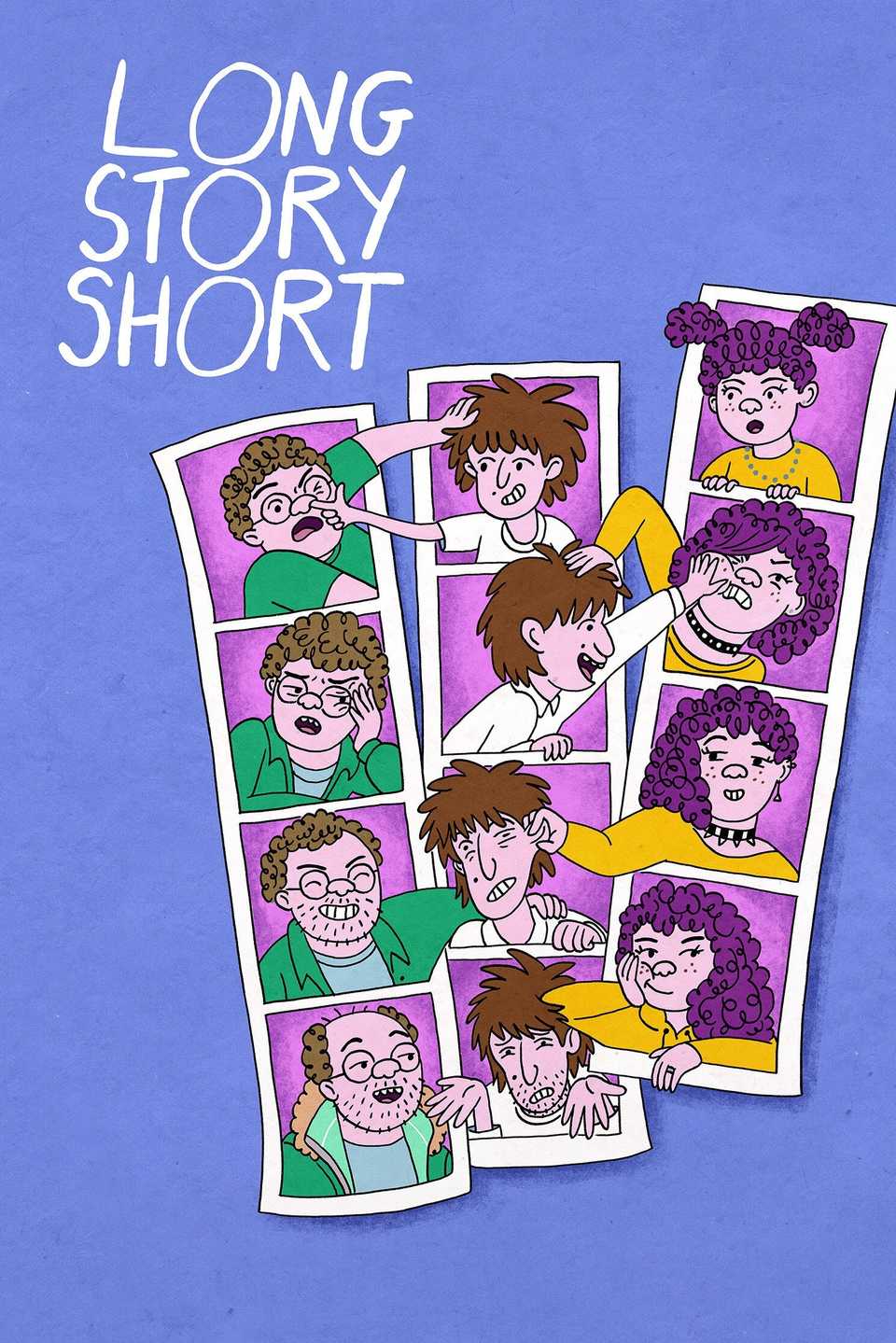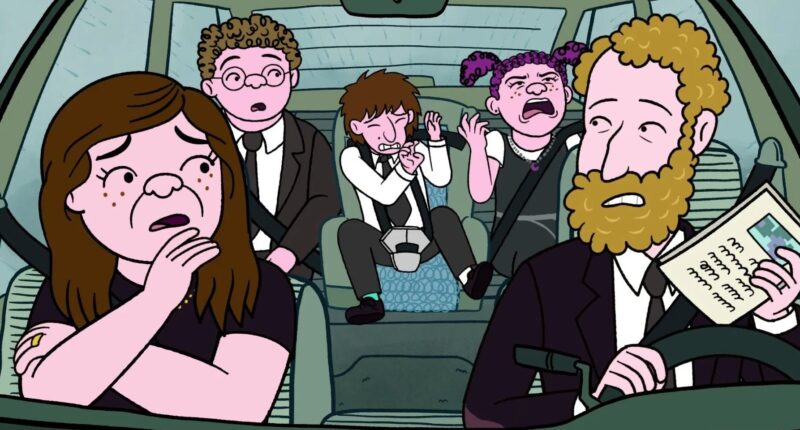From BoJack Horseman creator Raphael Bob-Waksberg, Netflix’s Long Story Short is a sprawling and ambitious fictional memoir about a middle-class Jewish family, told in a non-linear fashion with most of the events transpiring around the turn of the 21st century. Anyone familiar with the culture depicted here will find truth along with many laughs and substantial pathos. The best of what’s here certainly transcends that culture, though, and Long Story Short is an immersive depiction of familial ups and downs over many years.
The Netflix series is likely to receive the same kind of warm reception from critics and viewers that snowballed for BoJack over time, and given that Long Story Short has already been renewed ahead of the first season’s premiere (all 10 episodes were made available for review), it’s easy to imagine the warm, impressive show getting even better with time. While this focused and personal dramedy takes some time to find its footing, its unevenness is counterbalanced by how astonishing it can be.
What Is ‘Long Story Short’ About?
Long Story Short hops around chronologically in telling the story of the Schwoopers, a relatably chaotic Jewish family, primarily patriarch Elliot Cooper (Paul Reiser), mother Naomi Schwartz (Lisa Edelstein), and their three children: Avi (Ben Feldman), Shira (Abbi Jacobson), and Yoshi (Max Greenfield).
Avi sees ups and downs (mostly downs, eventually) in a marriage to Jen (Angelique Cabral). Yoshi is the unpredictable clown of the family, and Shira falls in love with another woman (Nicole Byer’s Kendra is arguably the best-written character in the show), with whom she shares two children and a dog named The Undeniable Isadora Duncan. It’s something of a heightened reality to be sure, but Long Story Short remains relatively grounded for an animated comedy series.
Drama and Comedy Hit Equally Hard in ‘Long Story Short’
Long Story Short is densely scripted and edited in a way that both captures the reality of a large family life and rewards repeat viewings. With the kind of rapid-fire, layered dialogue fans of BoJack Horseman might expect, the new series is funny, even hilarious throughout (there’s a joke about reCAPTCHA that’s rather riotous, bound to be quoted), but its most impressive stretches weave an intense mournfulness into the humor.
Voice work is top-notch across the board (Dave Franco and Gina Rodriguez are among several of the standout supporting voice players), but Edelstein is a clear highlight as the family’s matriarch. This archetype, a Jewish mother who’s as critical as she is loyal, is represented across countless media — sometimes controversially, and perhaps especially in projects made with less skill and insight than this — but Naomi is simply a brilliantly conceived and performed character. When an early timejump reveals the presence that positively dominated the family dynamic has quietly passed, it’s subtly, masterfully devastating in a way you can’t anticipate. Later, she’s alive, and in one of the final episodes, we catch a glimpse of her childhood in the 1950s. This alternating between timelines is never distracting, however; it just makes the narrative more engaging.
Two episodes in particular really stand out. In the fourth, “Shira Can’t Cook,” Shira and Kendra pull their hair out over perfecting knishes while grieving the loss of Bubbe. Then there’s “Kendra’s Job,” Episode 7, which is a 25-minute masterpiece in which the titular character’s backstory reveals a past of all-around misery that peaked in a surprisingly, darkly amusing yet cutthroat job at a family entertainment venue. At the height of her demoralization, and following a particularly heartless act of desperation, Kendra wanders into shul for the first time. Abruptly moving, especially in the context of some unbridled wackiness, this is one of the greatest moments on television in 2025. That an unassuming animation could conjure this kind, and this pitch, of emotion through a storyline about someone who becomes addicted to pills in the equivalent of a Chuck E. Cheese is, frankly, nothing less than an iron-clad testament to the limitless possibilities of this particular medium.
There’s very little to kvetch about here, beyond the simple fact that the anthological approach to storytelling here means some episodes are stronger than others. Long Story Short is an uncommonly entertaining and inventive dramedy that feels like a pure memoir even as it weaves in and out of the outlandish. It’s a sturdy foundation of considerable depth. With time, it’s feasible that Long Story Short could reach even the heights of its predecessor, Netflix’s first greatest and most iconic animated series.
Long Story Short is now available to stream on Netflix.

Long Story Short
Long Story Short is a funny, emotionally gripping animated dramedy that has the potential to get even better in follow-up seasons.
- Release Date
-
August 22, 2025
- Network
-
Netflix
- Long Story Short is hilarious and moving, simply a top-notch dramedy.
- The non-linear structure is inspired, often used to great emotional effect.
- The extremely fast-paced dialogue is impressive and authentic.
- The voice work is excellent across the board, with Lisa Edelstein a formidable standout.









